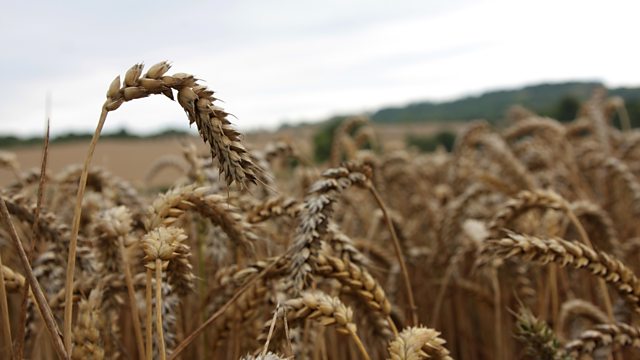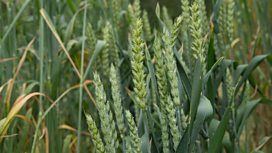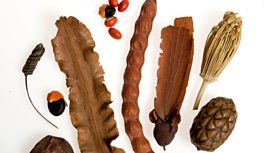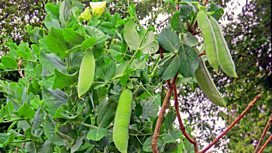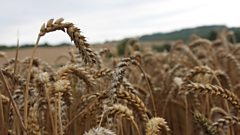Hunt for Diversity
Kathy Willis examines the quest to find wild relatives of our domesticated crops, to help sustain food production. From 2014.
Agriculture tends to favour the best food varieties but this is often a trade off with beneficial traits such as resistance to disease or tolerance to drought. During the 1920s the Russian botanist Nikolai Vavilov, having witnessed famine on a large scale, became increasingly concerned about the potential loss of locally adapted varieties and spent his life studying crop plants in their wild habitats.
Professor Kathy Willis examines Vavilov's pioneering work and his search for pools of genetic variability - so called "centres of origin" amongst the wild relatives of our domesticated crops that could help sustain future plant breeding for human use.
Vavilov's story has a tragic end but, as we hear, his legacy lives on in seedbanks such as Kew's Millennium Seedbank at Wakehurst Place whose Crop Wild Relatives Project is collecting and assessing new potential amongst the original progenitors of our domestic crops.
With contributions from archaeobotanist Dorian Fuller, Kew's curator of economic botany Mark Nesbitt, Crop Wild Relatives Project coordinator Ruth Eastwood, and head of the Millennium Seedbank Paul Smith.
Producer Adrian Washbourne.
Last on
More episodes
Previous
Next
![]()
Find out why the wild relatives of crops are so important for our future food security.
![]()
Plants: From Roots to Riches - Capsules of Life
Kathy Willis uncovers the role seedbanking plays in conserving worldwide plant diversity.
![]()
Plants: From Roots to Riches - Patterns from Crossed Peas
Prof Kathy Willis explores the discovery of new laws to create plant hybrids.
![]()
Plants: From Root to Riches - The Great Providers
Kathy Willis examines how we are building future resilience into our modern crops.
Clip
-
![]()
Plants: From Roots to Riches: Hunt for Diversity
Duration: 13:42
Broadcasts
- Thu 7 Aug 2014 13:45大象传媒 Radio 4 FM
- Thu 10 Mar 2016 14:15大象传媒 Radio 4 Extra
- Fri 11 Mar 2016 02:15大象传媒 Radio 4 Extra
- Thu 13 Jul 2017 14:15大象传媒 Radio 4 Extra
- Fri 14 Jul 2017 02:15大象传媒 Radio 4 Extra
- Thu 18 Jul 2019 14:15大象传媒 Radio 4 Extra
- Fri 19 Jul 2019 02:15大象传媒 Radio 4 Extra
Royal Botanic Gardens, Kew
Delve deeper into plant science and find out more about plants featured in the series
The Power of Plants
Discover a selection of programmes relating to plants.
Podcast
-
![]()
Plants: From Roots to Riches
Our relationship with plants: a major new history by Kew's science director Kathy Willis.
